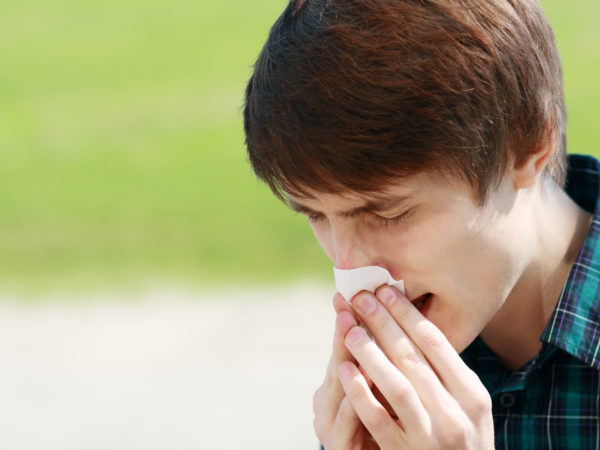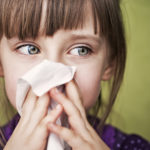Is The Man Flu Real?
Is there any scientific information on why men get (or seem) sicker than women when they get bad colds or the flu? Is there such a thing as the man flu?
Andrew Weil, M.D. | June 14, 2017

The notion that men get sicker with the flu than women has generated a lot of comments over the years, and there’s even an entertaining Internet site devoted to “man flu” that doesn’t take the issue seriously. But a small body of medical research does seem to suggest that men actually may get sicker with the flu.
The latest on this comes from the University of Ottawa, where researchers established that adult male mice became measurably sicker than female mice after both were injected with bacteria that cause an illness similar to flu. The males developed more severe symptoms and took longer to recover.
The fact that this occurred in mice in a single study doesn’t mean it is also true of humans, but another mouse study, from Johns Hopkins Bloomberg School of Public Health, found that implants of the female hormone progesterone protected female mice against the worst effects of the influenza A virus. These animals had less pulmonary inflammation and better lung function than female mice that didn’t receive the implant and became much sicker when they were infected with the virus.
The researchers reported that the progesterone increased levels of a protein called amphiregulin, which is produced by cells lining the lungs and that this protein proved protective against the most serious effects of the flu. It also was responsible for faster repair of damage to lung cells caused by the infection.
Lead researcher Sabra L. Klein, Ph.D. noted in a news release that no scientific data show whether progesterone has any effect on flu severity in women. Since progesterone is one of the hormones in the birth control pill, Dr. Klein said Hopkins researchers plan to add sections about contraception to their questionnaires about the flu.
Another study led by Dr. Klein found that estrogen dramatically reduced the amount of flu virus that replicated in infected cells gathered from women, but not from men. Here, researchers collected cells from the nasal passages of men and women and then exposed them to different types of estrogen. Then they exposed the cells to the influenza A virus. The team found that the virus replicated nearly 1,000 fold less in the female cells that had received any form of estrogen than they did in cells that hadn’t been exposed to the hormone. This didn’t happen in cells from men, despite the fact that men’s bodies do produce small amounts of estrogen. The researchers suggested that this might be because men’s cells have many fewer estrogen receptors than women’s.
Dr. Klein noted in a press release that estrogen probably doesn’t have a population-wide effect in protecting against the flu, because the levels of the hormone rise and fall in premenopausal women. But she suggested that women on birth control pills may have some protection and that hormone replacement therapy may provide some protection for postmenopausal women. However, she does not advocate taking birth control pills or going on HRT for flu protection.
So far, research seems to indicate that men may get sicker from the flu than women, but we can’t yet say that for sure.
Andrew Weil, M.D.
Sources:
Kyle Chiman Cai et al, “Age and sex differences in immune response following LPS treatment in mice.” Brain Behavior Immunity, November 2016, doi:10.1016/j.bbi.2016.08.002
Sabra L. Klein et al, “Estrogenic compounds reduce influenza A virus replication in primary human nasal epithelial cells derived from female, but not male, donors.” American Journal of Physiology – Lung Cellular and Molecular Physiology, December 18, 2015. DOI: 10.1152/ajplung.00398.2015
Sabra L. Klein et al, “Progesterone-Based Therapy Protects Against Influenza by Promoting Lung Repair and Recovery in Females.” PLoS Pathogens, September 15, 2016, doi:10.1371/journal.ppat.1005840












